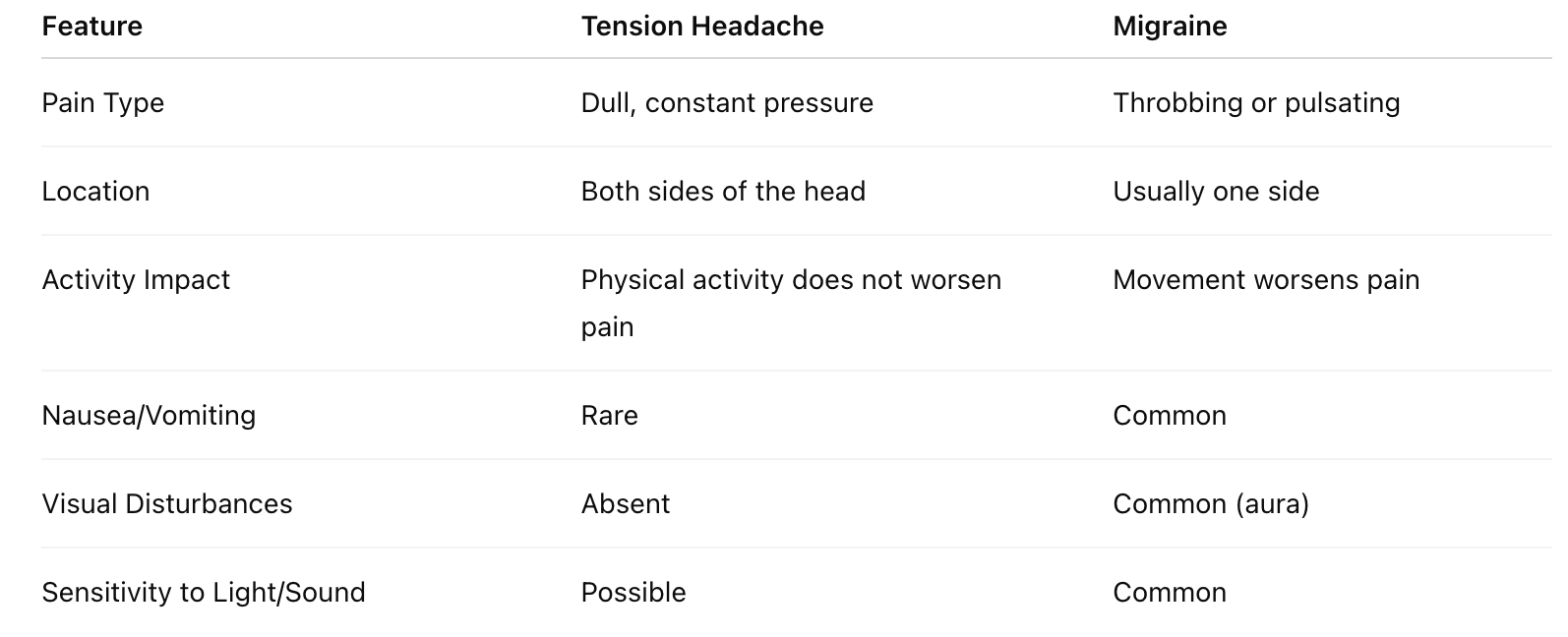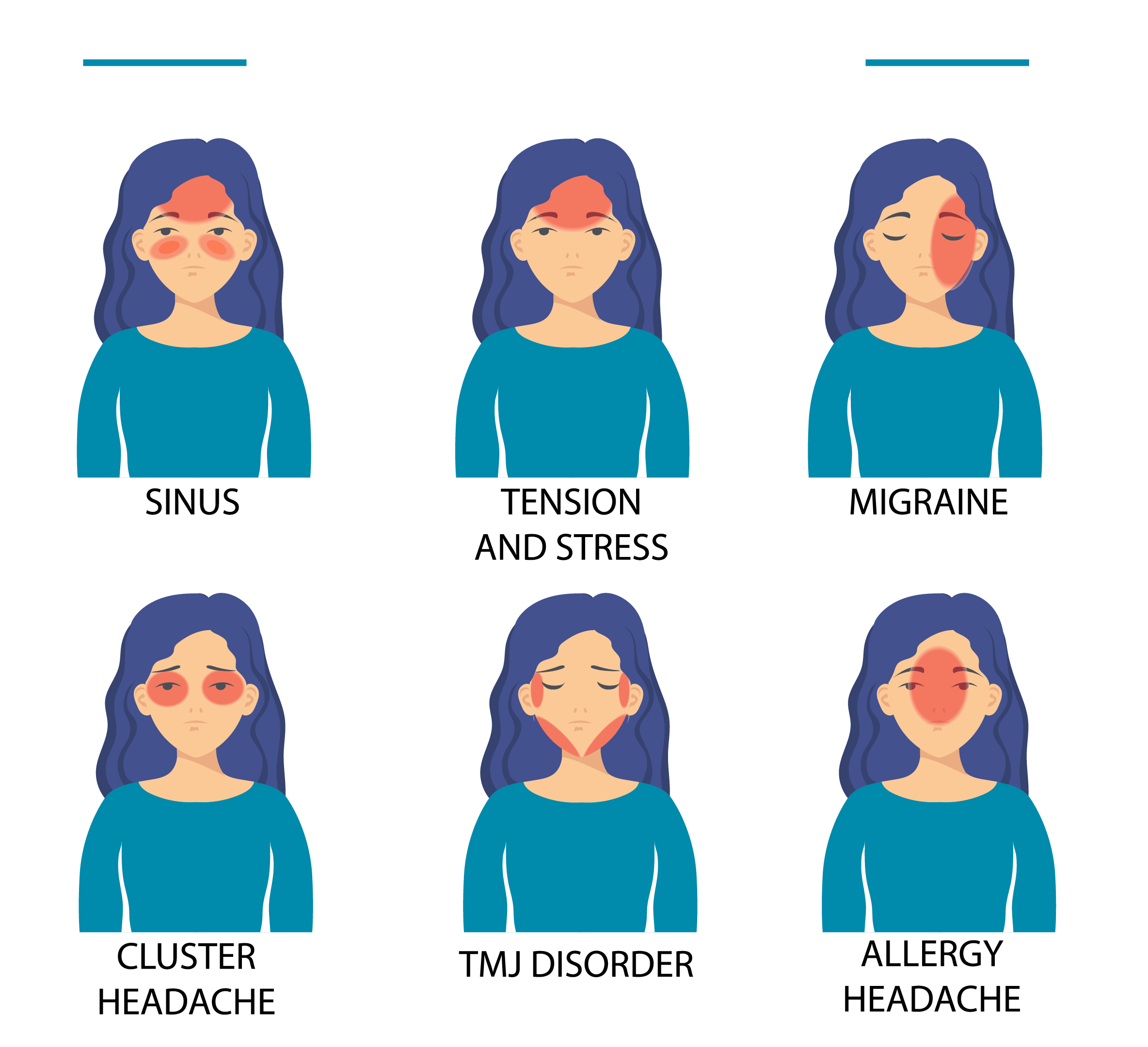
A tension headache (also known as tension-type headache or TTH) is one of the most common types of headaches affecting people of all ages. Often described as a tight band around the head, it can cause mild to moderate pain and persistent discomfort that interferes with daily life.
Although the exact cause of tension headaches isn’t fully understood, managing them effectively involves adopting healthy habits, stress-reduction techniques, and when necessary, medical treatment.
Tension-type headaches typically feel like a steady pressure or tightness across the forehead, temples, or back of the head and neck. Unlike migraines, they don’t usually cause throbbing pain or nausea.
This condition can be episodic (occasional) or chronic (frequent and long-lasting), depending on the frequency and duration of symptoms.
Recognizing the symptoms can help you distinguish a tension headache from other types of headaches. Common signs include:
Tension headaches and migraines are often confused due to overlapping symptoms, but there are key differences:

If you experience frequent or severe headaches, it’s important to consult a doctor for proper evaluation and to rule out any underlying medical conditions.
Consult a neurologist or specialist doctor if:
Some of these symptoms may indicate serious conditions such as a brain aneurysm or bleeding inside the brain, requiring immediate medical attention.

While once thought to be caused by muscle contractions in the scalp, neck, or face, recent studies show that increased sensitivity in the pain system may be the main trigger.
Common causes and triggers include:
Chronic tension headaches can affect more than just physical health. They may lead to:
Addressing the underlying cause early can prevent these complications and improve overall well-being.
Reducing stress is one of the most effective ways to prevent tension headaches. Techniques include:
This therapy uses sensors to monitor your body’s functions such as muscle tension, heart rate, and temperature. With real-time feedback, patients can learn to relax their muscles and reduce headache frequency.
CBT helps identify negative thought patterns that trigger stress and headaches, promoting better coping strategies.
Engaging in 30 minutes of exercise daily improves blood circulation, reduces stress hormones, and promotes better sleep.
Over-the-counter pain relievers can help manage occasional headaches. For chronic cases, doctors may prescribe muscle relaxants, antidepressants, or preventive medications based on your condition.
At Fakeeh University Hospital, our neurology and pain management specialists provide personalized headache treatment plans tailored to your condition. Using advanced diagnostic tools, we identify the root cause of your headaches and recommend a combination of lifestyle changes, therapy, and medical interventions for lasting relief.
Our multidisciplinary approach ensures you receive compassionate, expert care aimed at improving your quality of life and long-term wellness.
While tension headaches are common, they shouldn’t be ignored—especially if they become frequent or disrupt daily life. Understanding your triggers, maintaining a healthy lifestyle, and seeking timely medical care are essential to prevent chronic pain.
At Fakeeh University Hospital Dubai, we are committed to helping patients manage headaches through comprehensive diagnosis, preventive care, and advanced treatment options.
📞 Book your consultation today! Call +971 4 414 4444
🌐 Visit www.fuh.care to learn more about our Headache and Neurology Clinic.